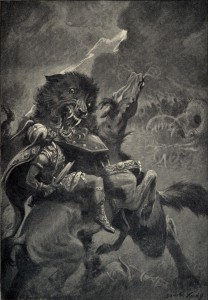I’m a bit of a navel gazer. Always trying to work myself out like I’m a mystery when what I often turn out to be is a bit of a Gumby (‘my brain hurts’). In that spirit, I’m going to talk a bit about me. Me. Me. Me.
I remember the moment very well. In the grand scheme of things it wasn’t much, but in the grand scheme of Me it was everything. I was sitting on a bench in St Ives with the mister, looking at the sea and sharing a bag of chips, when I decided to check my email. A sudden sharp inhale had a chip lodging in my windpipe like that ubiquitous bit of paper that buggers my hoover every Saturday. Mr Y patted me on the back – rather harder than he should have, I’d say – the chip popped out and I let out a little wail. One of those mewling sounds that confuses anyone who hears it – is she still choking? Is she laughing? Crying? Is she a nutjob? What is that man doing?
I’d won. I’d won a competition.
It was a small competition – no, literally, I had to write a story on the back of a postcard – but it was huge in my mind. Someone liked what I’d written. What’s more, it was someone whose opinion I respected (I still do, despite her faith in me). I’ve been scribbling since I was about six years old. I’ve sent off several things over the years and every time have received positive encouragement but never been accepted or been persistent (you’ll see why). Suddenly, there I was, late 30s, having someone really tipping their hat at my work. All ten sentences or whatever it was. You can read it here: http://katewombat.blogspot.ch/2012/05/writer-wednesday-post-card-fiction.html (all hail the Prof)
I’ll never forget that feeling. It might seem daft, dafter to writers who’ve been in the trenches for years, but I’d spent so long entirely (ENTIRELY) doubting myself, scribbling my stories and poems then stifling them before they ever got to see the light of day, that this was like touch paper to my barely-there self-belief. Not only had I taken myself seriously, I had been taken seriously. That shit is better than gold (particularly as I’m not at all fond of jewellery). It carried me along on a little wave of positivity and paid off again later in the year (affirmation is like crack, but less harsh on the teeth). Boosted by my mighty victory, I rubbed my brass monkeys again and submitted a story for Fox Spirit’s International Talk Like a Pirate Day competition. I was one of the winner’s. I was knocked out (not literally) and the same wail thing happened again (I’ve got a feeling that’s sticking around, alas).
Now, with a couple more accepted stories under my belt, I’m teetering on the edge of taking this business and myself seriously. I’m not talking about being all ‘yes, well I am a Writer, and I shall henceforth wear only lederhosen while I work and eat only brandy snaps on a Monday, and under no circumstances am I to be interrupted when the Muse doth descend’. What I’m talking about is battling that little voice in your head that whispers, ‘they don’t really like you, you’re a fraud. You should know better than to put yourself out there, who are you anyway? I’ve never heard of you, I wouldn’t want to …’ and so on ad infinitum. (At this point, you either know what I’m talking about or you think I’m a few rubberbands short of a flicking contest. I understand.)
I’m certainly told to take myself seriously – you can’t get away with being a ballbag while the Captain (our feral leader) is on your tail – but whenever I read a story back I hate it. Who wants to read that rubbish? It doesn’t make any sense! It’s yours! What is wrong with these people? I feel like a giant nob when anyone asks me what I do. I hear myself say, ‘I’m a writer’, and then I hear a million voices in my head cackling at my audacity … but then it is audacious. And why the fuck not, because you know what? I can write. Whole sentences can turn into whole paragraphs can turn into short stories on good days. I don’t expect everyone to like what I produce, of course I don’t, but people have told me they’ve enjoyed my work and I need to put better store in that. Have I just taken a step towards taking myself seriously? Knowing deep down that I can do it and accepting that other people genuinely believe in me? Maybe admitting it to the world means I have to take myself seriously. To do otherwise might make me into a bigger gump than you already think I am.
Well, why not then? There are always going to be people who say ‘you’re not a writer until XYZ’ (and I understand anyone who says, “a couple of short stories, love, calm down”), but who cares about the naysayers while there are others who say ‘Yay! Write another one’ and while I think ‘I have another one to write’? More of that affirmation crack –internal and external please, Matron. That little voice will always be there, I suspect; it’s part of the fuel I need to keep pushing myself on (I spite thee!), but it’s time to dial that motherlicker down.
Cut the horseshit.
Let’s roll.
Seriously, I’ve got stories to tell.




